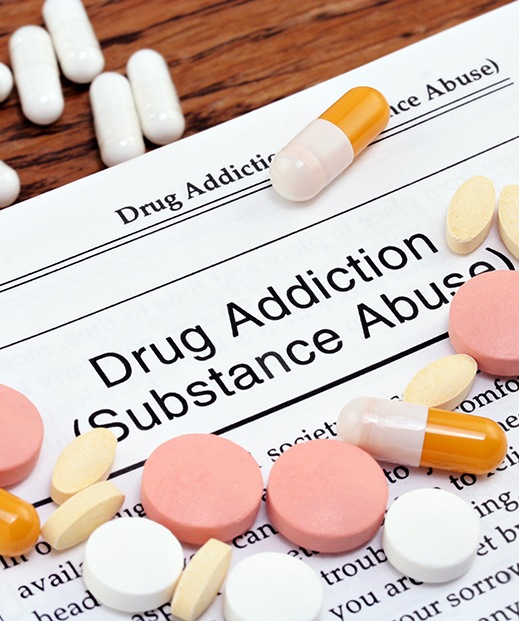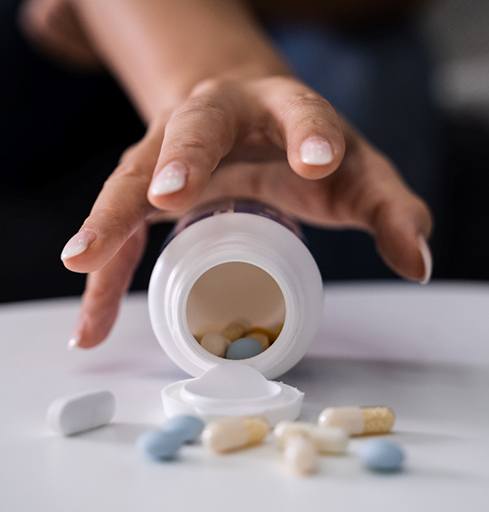Substance Abuse Treatment – Westfield, NJ
Break Free from Addiction

In 2022, 48.7 million people over the age of 12 had a substance use disorder (SUD), according to data published by the Substance Abuse and Mental Health Services Administration. Sadly, many of those people never received treatment. If you are struggling to break free from addiction and improper substance use, our Westfield mental health clinic team is here to help. Continue reading below to learn more about possible treatment options.
What Is Substance Abuse?

According to the American Psychological Association, “Substance use disorder is a cluster of physiological, behavioral, and cognitive symptoms associated with the continued use of substances despite substance-related problems, distress, and/or impairment, such as impaired control and risky use.
Alcohol is the most commonly abused substance. Opioids, hallucinogens, heroine, ketamine, stimulants, and a range of other drugs are also commonly misused and abused.
When to Seek Help

The line between substance use and abuse is sometimes difficult to see, especially if you are the one using the substance in question.
Here are some signs that you may need help:
- You loved ones have expressed concerns about your use of alcohol or certain medications.
- Your habit is causing problems at home, work, or school.
- You struggle with persistent drug or alcohol cravings.
- You spend a lot of time acquiring, using, or recovering from the use of a certain substance.
- You are using larger and larger amounts of a drug to feel its effects.
- You go to great lengths to keep your habit a secret.
Treatment Options for Substance Abuse

Substance abuse can be a complex problem, and it may require a multi-pronged approach to therapy. If you are ready to seek help, our Westfield team will learn about your situation and design a substance abuse treatment plan that has the goal of helping you break free of your addiction so you can get back to enjoying your life.
We might recommend one or more of the following:
Transcranial Magnetic Stimulation (TMS)
This therapy uses electromagnetic energy to stimulate certain areas of the brain, such as those involved in addiction. It is a non-invasive and non-pharmaceutical approach that may lead to a significant reduction in cravings.
Cognitive Behavioral Therapy
This is a form of talk therapy that can help to reshape thought and behavioral patterns. It may be helpful for coping with issues like the emotional challenges that come during substance withdrawal and afterward.
Medication Management
Some medications can be useful for reducing cravings and minimizing withdrawal symptoms. Our psychiatric team will carefully consider your situation before prescribing any medications or recommending that you stop taking any medications that might be adversely affecting your mental health and quality of life.



